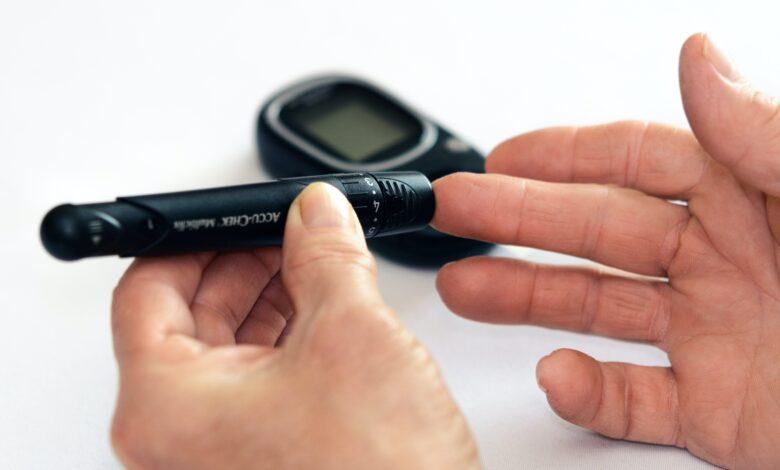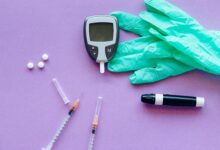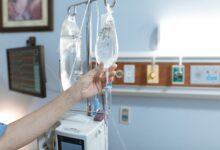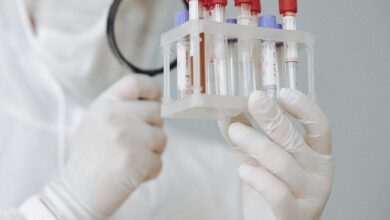
A review with the doctor every 3 months

Complications of diabetes
Even if everything is going well, it is advisable to meet with your doctor or your diabetologist every 3 months to review the disease. This is an opportunity to :
- to take note of the glycated hemoglobin values ;
- check your weight (especially in case of type 2 diabetes);
- to analyze the values obtained by self-monitoring of blood glucose when it is done;
- discuss the goals to be reached, whether in terms of blood sugar, weight loss, or physical activity;
- Monitor other risk factors (cholesterol, blood lipids, hypertension, etc.).
This is also the time to review the treatment: Is it well tolerated? Is it easy to take? Do you often forget to take it? There may be other medications that are better suited to your particular situation…
Note: Medical visits can of course be more frequent if you have concerns! Every 3 months is a minimum…
Know the common complications of diabetes
Remember: you are in the best position to know if something is wrong, or to detect the occurrence of a complication. Having diabetes increases the risk of certain conditions or diseases. Here are the most common complications to watch out for:
Vascular complications: pay attention to chest pain (possible angina), persistent headaches, the occurrence of a limp (claudication), which may reflect a problem in an artery in the leg, in particular.
Neurological complications: these may include pain in the limbs (nerves weakened by diabetes), or any sensation of burning, tingling, cold or heat, itching, reduced sensitivity… Also be vigilant in case of digestive, erectile or urinary disorders, as well as repeated dizziness, as this may be an attack on the autonomic nervous system.
Infectious complications: regularly check the condition of your feet, as well as the skin in general (there should be no ulcers or sores). In case of illness (fever, flu, diarrhea, etc.), consult your doctor quickly
A complete check-up every year
Complications of diabetes
Every year, diabetics are invited to undergo a complete check-up to detect possible complications. This check-up can be done more frequently if necessary. First and foremost, the health of the kidneys, whose vessels are frequently affected by diabetes, must be checked. To do this, a blood test and a urine sample will measure certain renal markers, such as creatinine and microalbuminuria.
An ophthalmological evaluation is also necessary, for the same reason: the small blood vessels of the retina can be damaged by the high sugar level. Therefore, a fundus should be performed, visual acuity and pressure in the eye (intraocular pressure) should be checked. The ophthalmologist will also perform a retinal angiography to visualize the condition of these vessels.
An annual oral check-up is also essential to maintain good dental and gum hygiene and to detect any complications early.
Finally, an electrocardiogram may be required to verify the proper functioning of the heart. An ultrasound-doppler of the heart or arteries may also be performed in case of doubt, as well as a whole range of other tests depending on health conditions and other risk factors. Diabetes is not a trivial disease: it is therefore important to be vigilant and not to hesitate to consult a doctor at the slightest doubt.
- bridge
- Allergies (overview)
- Achluophobia : all about the fear of the dark
- At what age can you do bodybuilding?
- Fatigue in the morning: causes and remedies










